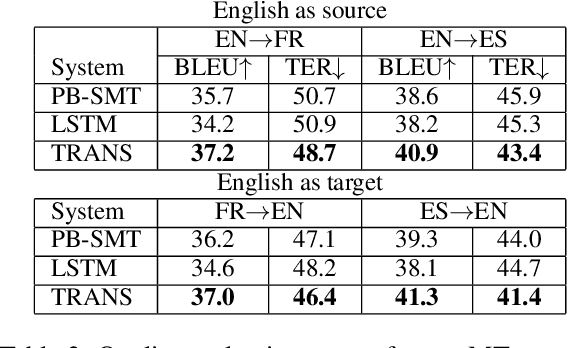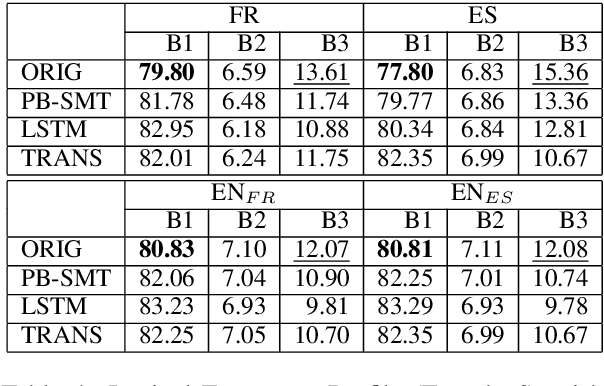Machine Translationese: Effects of Algorithmic Bias on Linguistic Complexity in Machine Translation
Paper and Code
Jan 30, 2021



Recent studies in the field of Machine Translation (MT) and Natural Language Processing (NLP) have shown that existing models amplify biases observed in the training data. The amplification of biases in language technology has mainly been examined with respect to specific phenomena, such as gender bias. In this work, we go beyond the study of gender in MT and investigate how bias amplification might affect language in a broader sense. We hypothesize that the 'algorithmic bias', i.e. an exacerbation of frequently observed patterns in combination with a loss of less frequent ones, not only exacerbates societal biases present in current datasets but could also lead to an artificially impoverished language: 'machine translationese'. We assess the linguistic richness (on a lexical and morphological level) of translations created by different data-driven MT paradigms - phrase-based statistical (PB-SMT) and neural MT (NMT). Our experiments show that there is a loss of lexical and morphological richness in the translations produced by all investigated MT paradigms for two language pairs (EN<=>FR and EN<=>ES).
 Add to Chrome
Add to Chrome Add to Firefox
Add to Firefox Add to Edge
Add to Edge